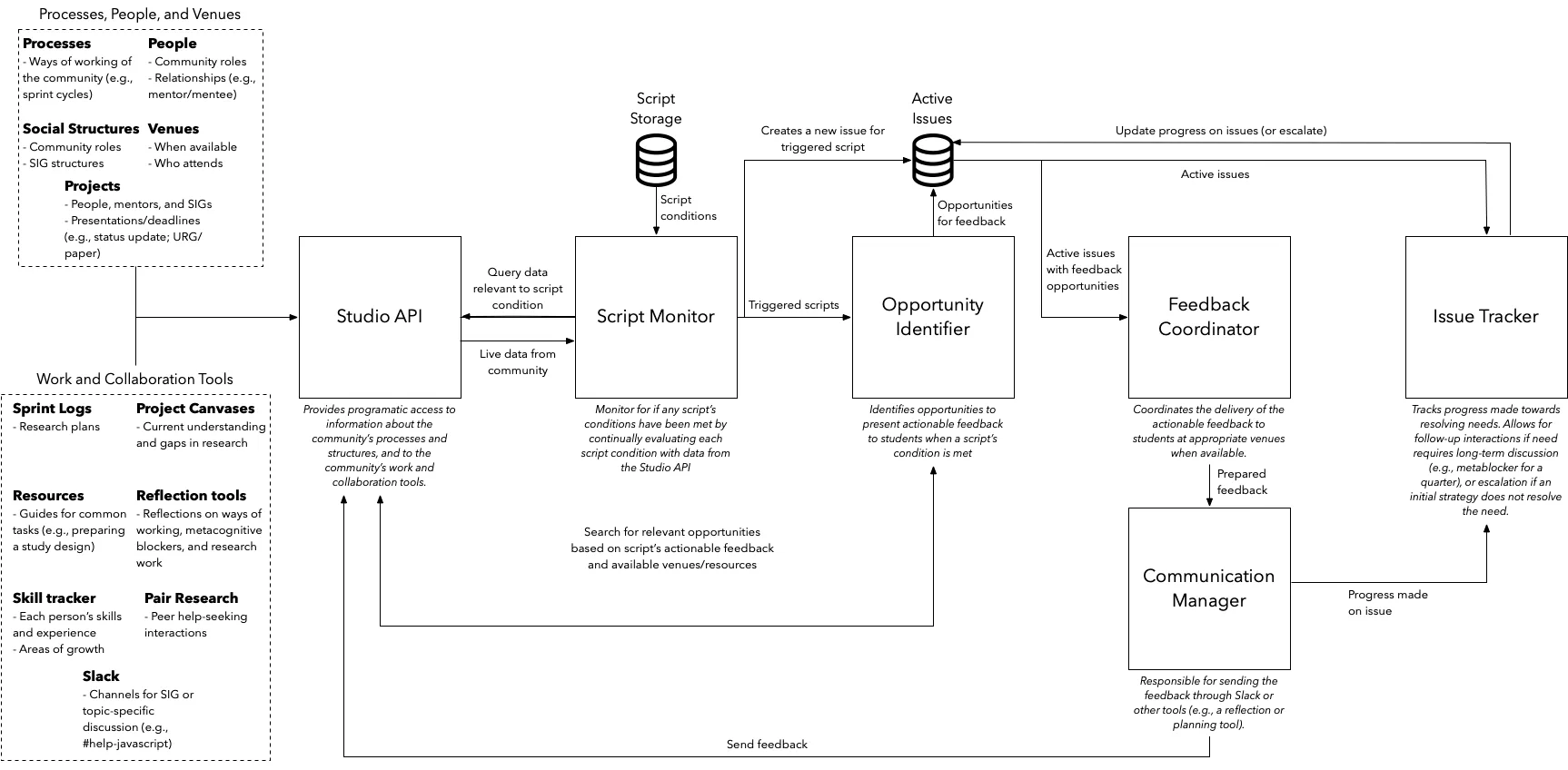Orchestration Scripting Platform

Project description
Mentors must be able to provide coaching to students when they are using ineffective network access strategies, but this remains difficult without additional support. A key challenge is supporting the identification of these access strategies, where an individual may be using a myriad of strategies throughout the community that mentor does not have visibility into. From our prior work, we saw that mentors are trying to observe interactions occurring in many contexts, but many of these strategies remain invisible to the mentors since they are not present in the situations that the strategy is being used in (e.g., whether students actually seek help from someone a mentor recommended). Moreover, the individual tools present in the community are good for working within the support venue that they are built for, but are unaware of the interactions that are occurring throughout the network. Thus, they are limited in supporting the practice of effective access strategies that span venues. In other words, there is currently no way for any one mentor or tool to know all the different strategies being practiced by all the members in the community.
To address this problem, we require tools that are imbued with an ecosystem-level awareness of the access strategies people are taking across the supports available to them in the network. To reach this goal, we must develop systems that are able to instrument the venues and tools across a networked community to be able to collect observable data about the interactions that people are having with the various supports. Using these data, we then need to develop systems that are able to provide awareness into what access strategies are being used throughout the community.
Towards this goal, future work may consider the design of an orchestration scripting system that uses data from a community’s venues and tools to support mentors in authoring detection conditions based on their existing approaches for identifying ineffective access patterns occurring in the community. As these ineffective strategies are surfaced, mentors can then work with their students to practice more effective ones, or even provide common solutions directly through scripts. For example in DTR, a mentor may want students to collaborate with their peers from across the network, and write a script that detects when a student is seeking help sparingly, and from only a small set of mentors and peers. If triggered, the orchestration script could recommend that the student check-in with a peer mentor or a mentor on strategies for collaborating more frequently with their peers, such as being connected with another peer the student does not already know. In this way, the orchestration scripting system can provide awareness of how access strategies are being practiced throughout the network in ways such that more effective strategies can be adopted.
Figures

Figure 1: Studio API + OS engine architecture
Team
Faculty
- Haoqi Zhang
Ph.D. Students
- Alumni: Kapil Garg